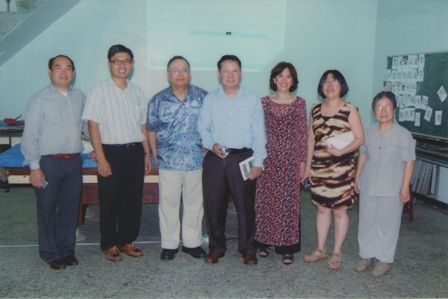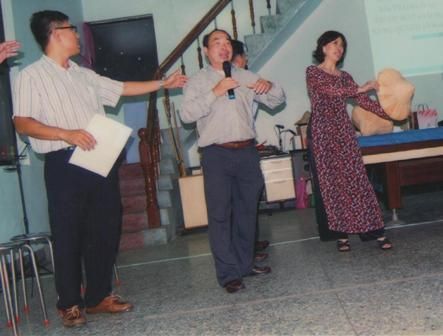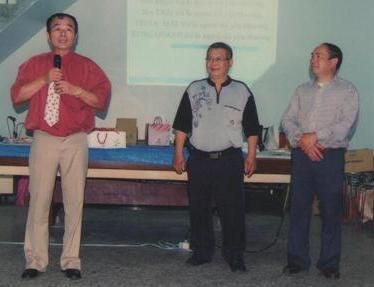
Team Chiayi village outreach

Da Xi Cu village sits within the Chiayi city limits near the western coast of central Taiwan. In this 300-year-old village, family connections are everything. They determine who can hold office in the local government and are central to the main religion (a mix of ancestor worship, Chinese folk religion, Confucianism and Taoism).
Even though the town is small, it is dotted with shrines and a large, well-maintained temple. Big events, celebrations and festivals all take place at the temple square. The village is very dark spiritually and the gospel has not been part of the village culture. Yet in this town, in this temple square, SEND Taiwan had the chance to share the love of Christ.

Because of the clannish nature of Da Xi Cu, even getting the opportunity to come into the village and share was a challenge. Over the years, a handful of people have done prayer walks through the village but no other opportunities were available. Some friends of SEND Taiwan missionaries met with the village council to suggest programs for children and the elderly, but the village already had programs for those groups. What they didn’t have, however, was something to help new immigrants adjust to Taiwanese culture. So, when Team Chiayi found out that the village residents included Vietnamese, a few Indonesians and Mainland Chinese brides, they felt that they could offer help in this area. The council agreed! SEND Taiwan had its way into the village, a vehicle to take the gospel to Da Xi Cu.
A year before, some Vietnamese Christians from America started planning a short-term mission trip to Taiwan, which would include a visit to Da Xi Cu. The village offered the official invitation and the prep work started: a prayer walk, arranging a place for the team to stay and eat, and cultural orientation.
The Vietnamese team’s trip started with a 12-course dinner at the home of the village host. After dining on specialty dishes found in Chiayi City, there were formal introductions and welcome speeches. This is a necessary formality for relationship bonding with the village people.
The next day, the team visited the village chief and took him some gifts. He was very hospitable and generous. The group prayed for him and his family.
At the Community Hall (located next to the village Temple) there was a rehearsal for the evening program. It was so exciting to be “under way,” doing the ministry, taking the light of the gospel to a dark village!

About 26 adults and 17 children came to enjoy the evening program and snacks. There were new immigrants from Vietnam, Indonesia and Mainland China. Even the village chief came to check out things and make a short welcome speech in English. Two Vietnamese sisters shared their testimonies of God’s goodness and their adjustments to new cultures, and a third short termer, Pastor Son, gave an invitation to receive blessings (receive Christ). Four Vietnamese ladies and an elderly Chinese lady came forward. Three Indonesians also gathered to pray in their group. The Gospel of Mark (in Mandarin and Vietnamese), specially published by a Taiwanese mission organization, was given to the Vietnamese families.
Praise the Lord for this initial outreach to the Da Xi Cu Village. This was the first step in taking the light of the gospel to this dark village! Many more Taiwanese villages just like Da Xi Cu have no gospel witness. Will you be a part in bringing it to them?
Will you pray?
• SEND Taiwan to establish strong relationships with the village
• Wisdom in reaching out
How you could be involved?
• Commit to pray for this village and the future work of Team Chiayi
• Come to serve in Taiwan, short or long term
• Support Vision 119 financially
— By Ron Adhikari, Team Chiayi leader
Additional Posts




